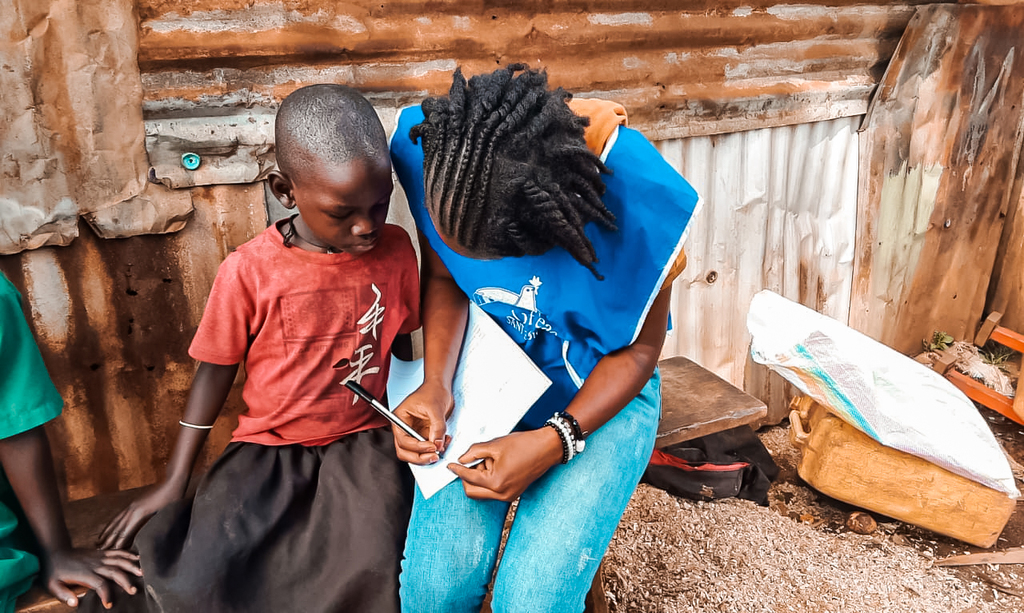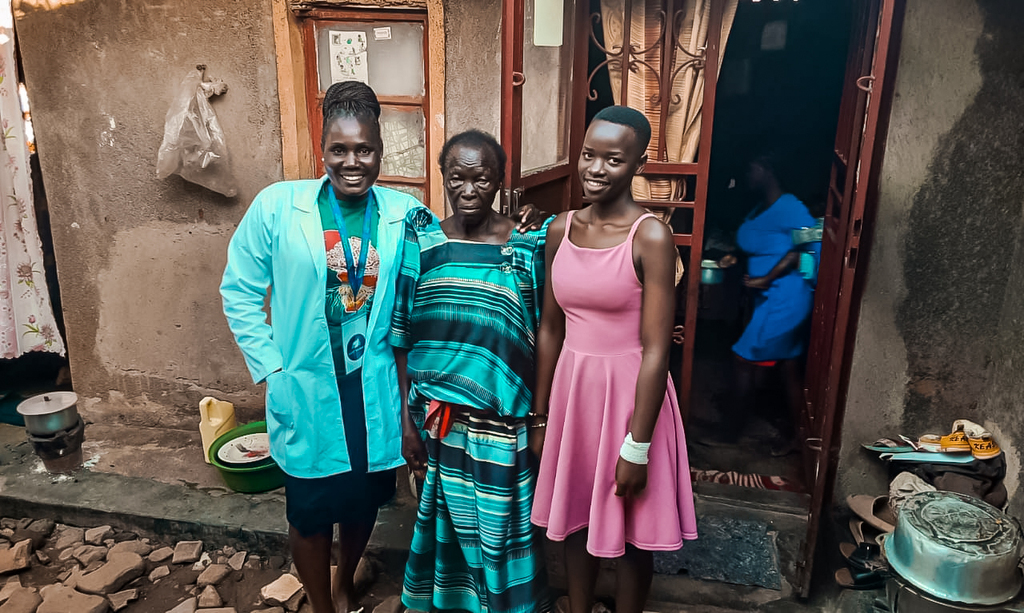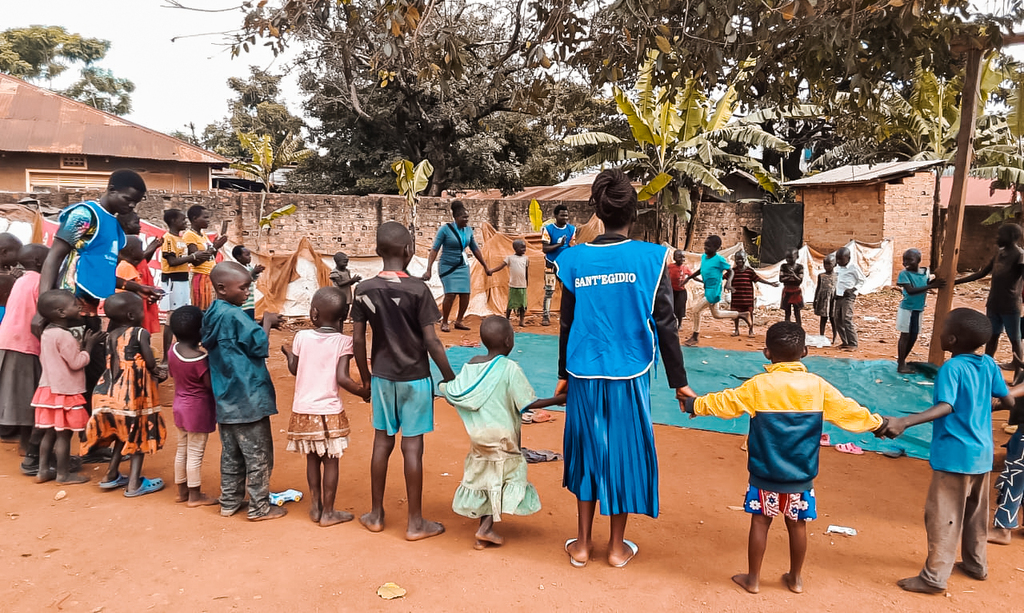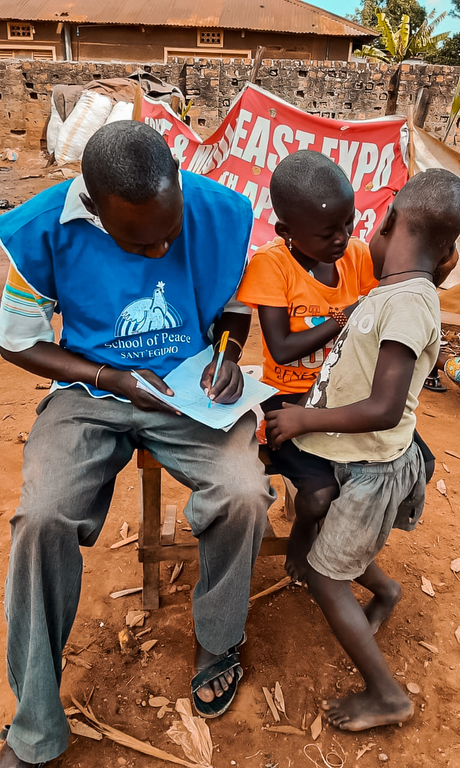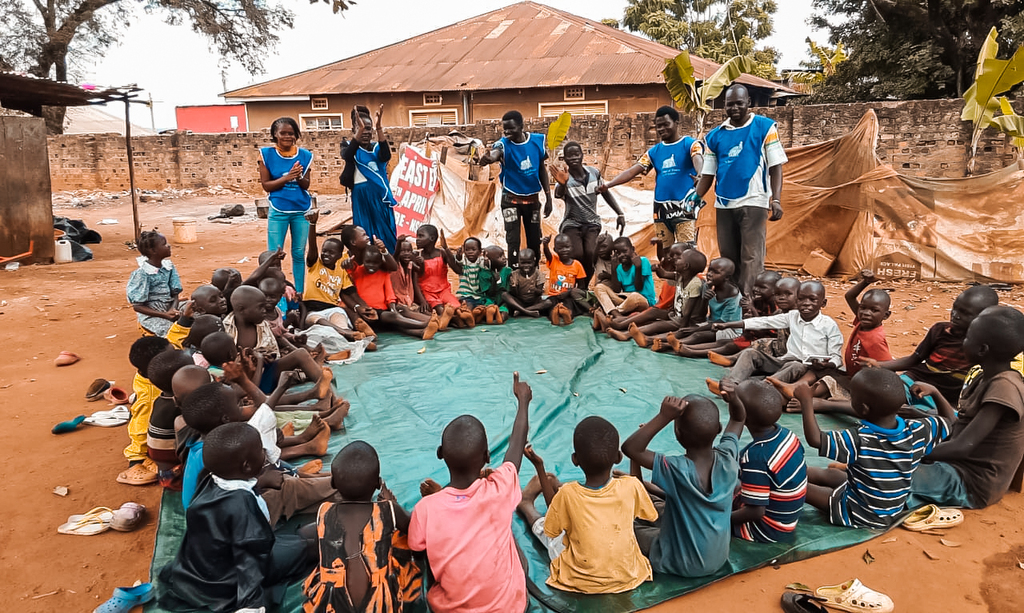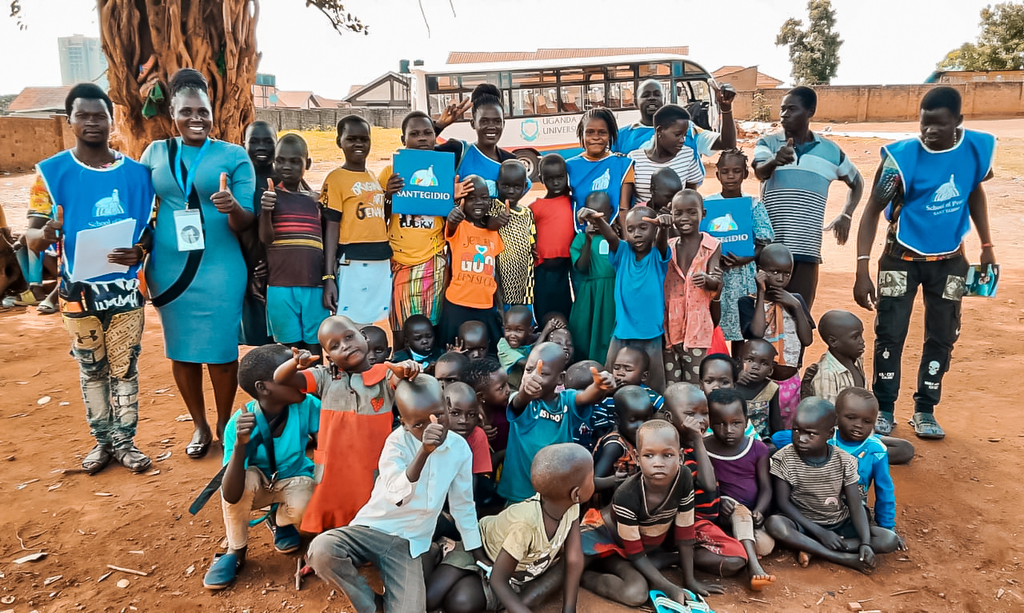Life for children in Uganda is not easy. Education levels are improving (the literacy rate will reach 79% in 2021), yet minors are exposed to a thousand risks: in a nation where only 32% of the population has civil registration (source: World Bank), it is not easy to protect the lives of the youngest from abuse, human trafficking, labour and sexual exploitation.
Such are the problems faced by Sant'Egidio's Schools of Peace, present in several neighbourhoods of Kampala (Muyenga, Katwe, Makerere, Nakulabye and Ntinda), in Lira in the north of the country, in Nakivale and in the Nyumanzi refugee camp. Here the Community has been striving to offer opportunities for education and development to over 400 minors.
The elderly, who represent a small minority of the Ugandan population (only 1.68% in 2021) also find themselves pushed to the margins of society because of various problems. The first being the misappropriation of property. Indeed, it is easy to exploit of an elderly person's frailty to take away the land that is his or her main source of livelihood. Sant'Egidio works tirelessly to raise awareness on this issue and to defend the fundamental rights of the elderly, trying to ensure that they maintain access to the resources they need to live a dignified life.
Another crucial challenge is the lack of adequate health services and the absence of programmes providing free access to care. But above all, there is a need to overcome the prejudices affecting those who reach an older age and that cause isolation and even explicit violence. This is why the Community works hard to overcome these barriers of prejudice and create spaces for intergenerational dialogue that foster mutual understanding and support.
Recently, the Community of Kampala has launched, in the Muyenga neighbourhood, an original project to help the most disadvantaged people, inspired by the experience of the Eco-Solidarity City opened by Sant'Egidio in Rome many years ago. Collecting and recycling clothes no longer used, but in good condition, is not just a response to the needs of the poorest. It creates a virtuous circle that counteracts the 'culture of waste' and through recycling and reusing develops what the encyclical letter Laudato sì defines as an integral ecology.














